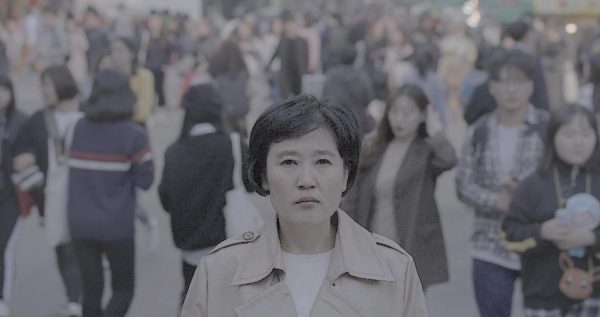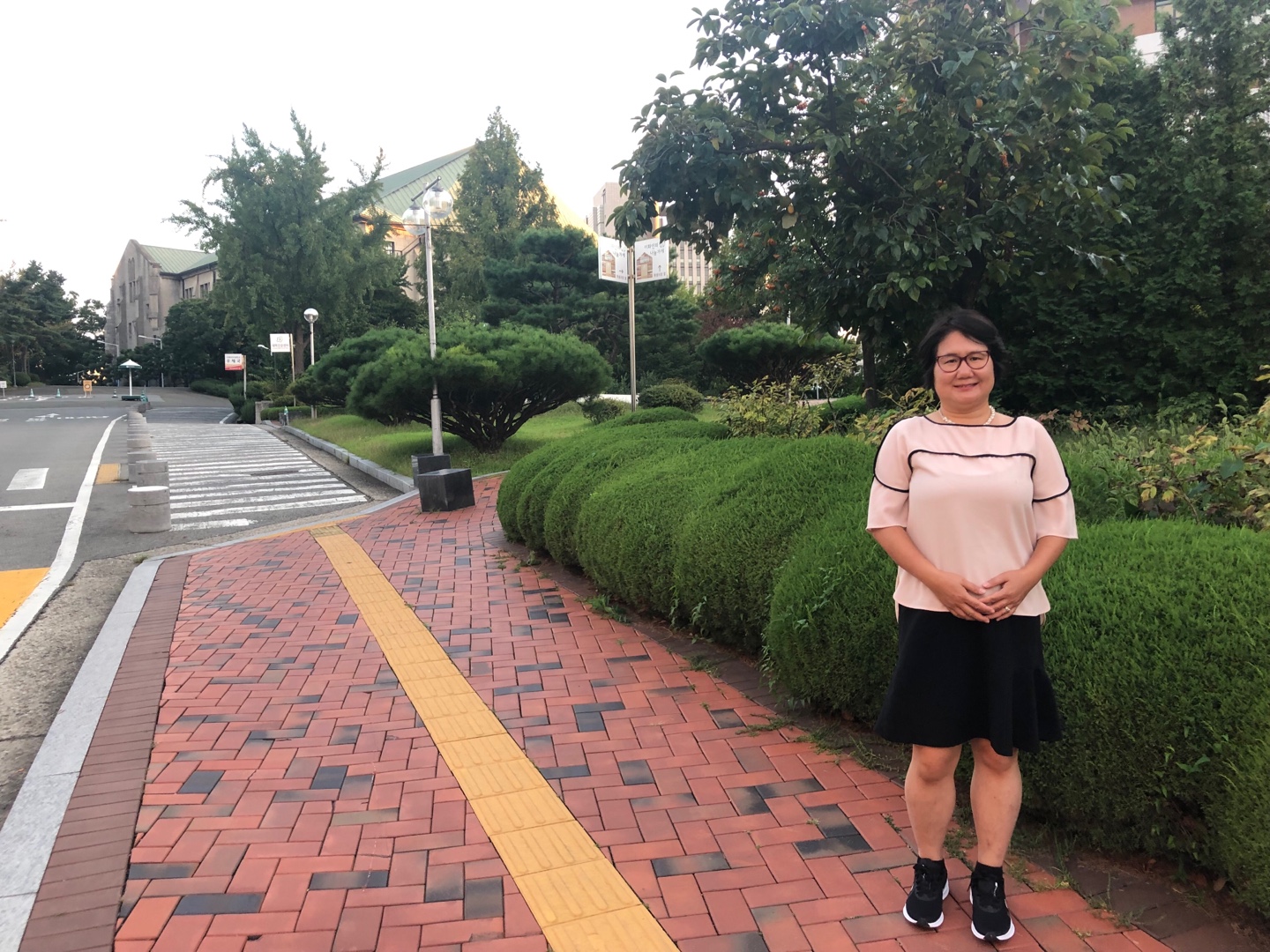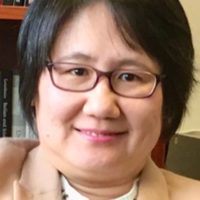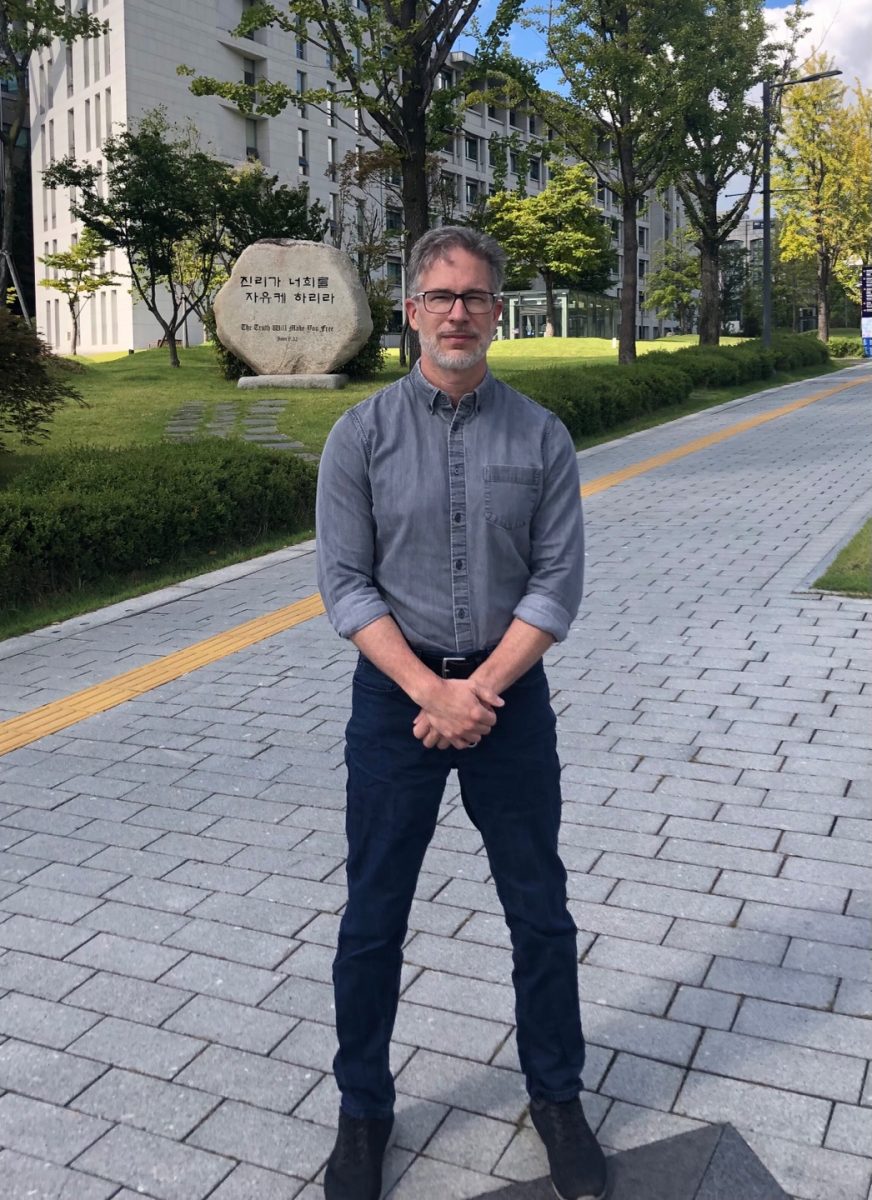
Screenshot of Seung-jun Yi’s documentary Shadow Flowers features a North Korean housewife, who was forced to come to South Korea and became its citizen against her will. Image used with permission from Taskovski Films.
A number of Korean films have enjoyed crossover success in the U.S. and Europe over the past few years, and this fall the South Korean series Squid Game became Netflix’s “‘biggest ever’ series launch,” according to CNN.
Hye Seung Chung, professor of film and media studies, told CBS that South Korean media “is not just means of entertainment like in the United States or in the West, but media has been considered a very important tool for political enlightenment or political resistance.”
Chung notes that when she discussed Bong Joon-ho’s film Parasite (the first non-English language film to win the Academy Award for Best Picture) with her CSU students, she was “shocked by how enamored my own students are with this Korean film.” After teaching this and other Korean-language films to her CSU students, Chung said she was “pleasantly surprised by how much my students learned about Korean history and politics in that short amount of time and how much they could empathize with characters who spoke a different language than their own native tongue.”
Both Parasite and Squid Game are parables of class struggle, addressing the inequities of neoliberal economics and illustrating how even the blockbuster media coming out of South Korea is concerned with human rights.
It is the political enlightenment or resistance that informs Chung’s research as a Fulbright scholar in South Korea during the 2021-22 academic year. She and Scott Diffrient, also a professor of film and media studies and Fulbright scholar, are working on efforts that bolster understanding of and appreciation for democratic principles such as free speech and human rights by critically engaging historical and contemporary Korean films.

CSU's Source explains that Chung is working in the Korean Film Archive to provide a “revisionist understanding of state film censorship” during the Cold War. She is particularly interested in understanding film censorship “from a transnational perspective,” reframing “discourse around film censorship as a multi-layered, dialogical process.” Chung’s research illustrates how censorship is a dynamic, transnational phenomenon that can’t be understood within the confines of one country's borders.
Chung is based in Ewha Woman’s University, sharing her research with students and faculty there. "I feel privileged and honored to be affiliated with Ewha Woman’s University,"Chung said, “which is not only the home to premier higher education of women in South Korea but also my alma mater.” CSU's Source notes that Chung intends to "engage other scholars to help change negative perceptions some might have about America as a superpower by treating the people impacted by U.S. policy with respect, humility, and solidarity – a charge she referred to as the most important educational mission of her career."
Chung is making the most of this opportunity to share her expertise in American and Korean cinema. She has been invited to deliver four Fulbright lectures related to her research on film censorship and regulation in Hollywood and Korea. She explains that

“The first two lectures will draw primarily upon my 2020 book Hollywood Diplomacy: Film Regulation, Foreign Relations, and East Asian Representations. The third lecture will present my main Fulbright research on South Korea's state film censorship during the Cold War, drawing upon government archival documents recently made publicly available. My last lecture will center on my critique of Bong Joon-ho’s film Parasite as a neoliberal tale of intraclass violence and working-class 'monstrosity.'”
Chung and Diffrient have collaborated on a number of research projects. Their collaborations relate directly to their two Fulbright awards. In addition to bringing their expertise to South Korean students and scholars, their research examines the international impact of South Korean films. Their coauthored book, Movie Minorities: Transnational Rights Advocacy and South Korean Cinema, was recently published by Rutgers University Press and examines how “rights advocacy has become a prominent facet of South Korea’s increasingly transnational motion picture output.”

For his Fulbright, Diffrient is teaching human rights film and media courses to both undergraduate and graduate students at South Korea’s Yonsei University. Diffrient said that he feels “incredibly fortunate to be teaching at Yonsei University, one of the most highly ranked universities in South Korea and home to a human rights center as well as top-tier library and research facilities. Yonsei is the only university in South Korea to offer a Fulbright Distinguished Lecturer position, and I am honored to be selected as this year's awardee.”
CSU’s Source explains that Diffrient’s courses demonstrate how film can be used to shape people’s opinions about human rights violations. Diffrient also is making use of the many personal connections he’s made over the years with documentary filmmakers such as Korea’s Seung-jun Yi, incorporating interviews with filmmakers so that his students may “learn directly from the source about the challenges involved in making films of this nature.”
As U.S. audiences become more accustomed to watching films and television series produced elsewhere, Chung notes that “American students and citizens will have heretofore unprecedented opportunities to learn more about other countries and cultures through globally distributed motion pictures.” These opportunities are crucial because, in Chung’s view, “Well-made films can bridge cultural and linguistic barriers as they speak to the hearts and minds of audiences around the world.”
Not only do these media offer opportunities for intercultural exchange, they also can break down barriers that inhibit democratic health, constrain human rights, and curtail the free expression of diverse ideas—the same work that Colorado State University’s faculty has been engaged in for more than a century.
Navigating Borders
From water to dance, science to film, clay to gender, the liberal arts helps us navigate the borders in our lives that are physical, metaphorical, or cultural.
